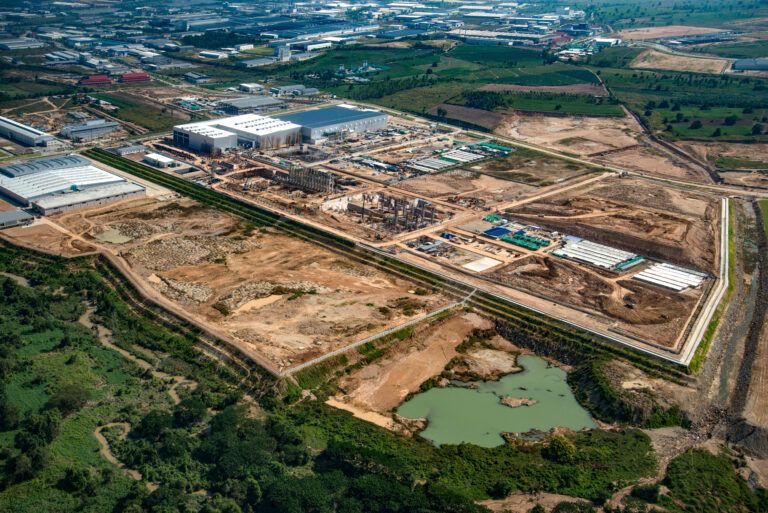Electrical engineering is a dynamic and versatile field, offering a wide range of career paths that cater to diverse interests and skill sets. From the intricacies of electronics engineering to the broad scope of power generation and distribution, the opportunities are vast and varied. Whether you’re fascinated by the potential of renewable energy, the precision of control systems, or the innovation within telecommunications, there’s a niche for every aspiring electrical engineer.
This article delves into the primary career paths available, shedding light on the diverse sectors that electrical engineers can venture into. It also explores how to choose the right career path, considering personal interests, skills, and the ever-evolving technological landscape. With technology advancing at a rapid pace, electrical engineers are at the forefront, driving progress and shaping the future.
Whether you’re just starting or looking to pivot your career, understanding the spectrum of opportunities and the pathways to advancement is crucial in this exciting and ever-changing field. You might find that a role in electrical engineering offers the kind of challenge and growth potential that aligns with your ambitions.
What Are the Primary Career Paths for Electrical Engineers?
Electrical engineering spans diverse specialised career paths, each offering unique opportunities and challenges. Here are the primary pathways available:
Design and Development Engineering
Engineers develop consumer electronics and automotive systems, innovating to meet evolving consumer demands and technological advancements.
Power Systems
Specialists ensure efficient, reliable generation, transmission, and distribution of electricity, increasingly from renewable energy technologies.
Project Engineering and Management
This role oversees construction and manufacturing projects, balancing technical requirements with managerial skills.
Research and Development (R&D)
R&D drives progress in renewable energy technologies, robotics, and automation, pushing technological boundaries.
Sales Engineering
Combines engineering expertise with sales, involving technical sales in electronics and engineering services through deep technical knowledge and communication skills.
Consulting
Consultants provide specialised expertise in electrical safety and energy efficiency consulting, helping organisations navigate complex challenges.
Academia and Teaching
Engineers contribute through university positions, research institutions, and corporate training and education.
Government and Regulatory Work
Engineers serve in federal or provincial agencies, the military, municipal utilities, and public sector roles, ensuring safety and regulatory compliance.
Entrepreneurship
Innovative engineers start engineering consultancies or technology companies, driving new solutions.
Quality Assurance and Testing
Focuses on product validation, compliance, and standards development to ensure safety and reliability.
Field Service Engineering
Provides on-site troubleshooting, maintenance, customer support, and training for optimal technology performance.
Systems Engineering
Manages large-scale system integration requiring meticulous architecture and planning.
Technical Writing and Documentation
Creates manuals, specifications, proposals, and technical communications for knowledge transfer and project development.
These career paths demonstrate electrical engineering’s versatility across sectors, from powering infrastructure to cutting-edge innovation.
How to Choose the Right Career Path
Choosing the right career path in electrical engineering requires deliberate evaluation of your interests, skills, and career aspirations. Success depends on thorough self-assessment, industry research, and understanding career progression opportunities.
The choice should balance your technical capabilities and interests with available professional opportunities and current industry trends.
Self-Assessment Considerations: Identify your technical interests, strengths, and what aspects of electrical engineering spark your passion.
Work Environment Preferences: Determine your ideal setting: lab environments, on-site projects, or corporate strategic roles.
Career Goal Alignment: Ensure career paths align with your personal and professional ambitions.
Long-Term Vision and Lifestyle Goals: Consider work-life balance and how careers support broader life objectives.
Risk Tolerance and Stability Preferences: Assess comfort with risk versus stability for entrepreneurial or traditional routes.
Industry Research and Exploration: Research sectors from renewable energy to consumer electronics to identify viable fields.
Informational Interviews with Professionals: Gain insights into role realities through conversations with experienced professionals.
Job Shadowing and Internship Experiences: Secure hands-on experience for a deeper understanding of your career path.
Career Timeline and Progression Expectations
Electrical engineering careers unfold in distinct stages, each with specific expectations and milestones. Salary and compensation increase throughout this trajectory, reflecting growing expertise, responsibilities, and organisational value. Geographic location, industry sector, and individual performance significantly influence career progression and financial rewards.
Entry-Level Positions (0-2 Years)
- Focus on foundational skill application and learning under supervision
- Common roles: Design Assistants, Junior Engineers, Test Engineers
- Responsibilities include supporting design processes, executing tests, and performing data analysis
- Intensive learning phase with on-the-job training and formal educational opportunities
Mid-Level Positions (3-7 Years)
- Take on greater project responsibilities with increased independence in decision-making
- Often lead smaller projects or significant portions of larger ones
- Develop specialisations in areas like renewable energy, robotics, or signal processing
- Require advanced technical and project management skills
Senior-Level Positions (8-15 Years)
- Establish authority in the field with leadership and strategic responsibilities.
- Mentor younger colleagues and manage teams or departments
- Engage in strategic planning and decision-making that influences project directions
- Set standards for excellence and organisational guidance
Executive and Principal Positions (15+ Years)
- Hold titles such as Chief Engineer, VP of Engineering, or CTO
- Lead departments or entire organisations, aligning engineering with business strategy
- Recognised as thought leaders through public speaking, publications, and professional organisations
- Wield considerable influence over organisational direction and industry standards
Salary Progression and Compensation
Salary progression in electrical engineering is influenced by experience, specialisation, and geographic location. Beyond base salaries, compensation packages include bonuses, equity options, and comprehensive benefits. These vary widely across companies and sectors, with tech-centric regions like Silicon Valley offering higher salaries and more competitive benefits due to high demand for elite talent.
- Entry-Level Expectations – Competitive starting salaries reflecting technical demands and growth potential
- Industry-Specific Variations – Technology and renewable energy sectors typically offer higher starting compensation due to rapid expansion and specialised skill demand.
- Regional and Geographic Factors – Salaries vary by location, with tech hubs and metropolitan areas offering higher pay due to competitive markets and living costs.
- Mid-Career Earning Growth – Significant salary increases for engineers with specialised expertise or project leadership experience
- Specialisation Premium – High-demand areas like cybersecurity, robotics, and renewable energy command elevated compensation
- Management vs. Technical Tracks – Leadership roles typically offer higher salaries than technical tracks due to added responsibilities.
- Senior-Level Packages – Comprehensive compensation including significant bonuses, equity options, and strategic leadership premiums
- Additional Benefits – Equity stakes, performance bonuses, and extensive benefits varying by company size and role specifics
Geographic Considerations and Opportunities
Geographic location significantly influences career opportunities for electrical engineers. Remote work has expanded opportunities, allowing employment with top companies without relocation, though it may include travel requirements or project-specific limitations. International markets offer global perspectives and diverse opportunities, but require adaptability to different cultural and regulatory environments.
- Tech Hubs and Innovation Centres – Silicon Valley and similar centres offer cutting-edge work and competitive compensation, but with higher living costs.
- Industrial and Manufacturing Regions – Traditional electrical engineering roles in power systems and automation, with more manageable living expenses
- Cost of Living vs. Salary Balance – Higher salaries in major hubs may be offset by increased living expenses, requiring careful financial consideration
- Remote Work Possibilities – Access to global companies without relocation, though it may involve travel requirements and time zone challenges
- International Opportunities – Global markets seeking skilled engineers with diverse cultural experiences and regulatory challenges
- Cultural and Regulatory Adaptability – International work requires an understanding of local languages, cultural nuances, and regulatory standards.
Vista Projects: Industrial Systems Integration Excellence
Vista Projects is an integrated industrial engineering and system integration firm offering compelling opportunities within the energy sector. The company specialises in the digital transformation of industrial assets across petrochemical processing, mineral processing, and biofuels engineering facilities.
We provide electrical engineers with the chance to contribute to green energy initiatives, including carbon capture, renewables, and energy efficiency projects, giving you exposure to power systems, industrial automation, and control systems integration. Our multidisciplinary approach and international operations offer diverse project experiences that bridge traditional electrical engineering with emerging energy technologies and digital asset managementDigital asset management (DAM) is a business process to organize, store, and process digital information related to real-world assets. In th... solutions, allowing you to develop expertise across multiple cutting-edge sectors.
Industry-Specific Advancement Patterns
Advancement patterns within electrical engineering vary significantly across industries. Technology companies offer fast-track progression for innovation contributors, while traditional manufacturing follows structured advancement valuing deep technical expertise. Utilities require regulatory knowledge and safety standards expertise, while aerospace and defence prioritise security clearances and specialised knowledge.
The automotive industry is creating new advancement paths through electric vehicles and autonomous systems, focusing on powertrain technologies and systems integration. Consulting offers varied trajectories driven by client satisfaction and project diversity. Success depends on navigating each industry’s specific technical requirements, regulatory environments, and market demands.
- Technology and Software Companies – Fast-track advancement through innovation contribution and rapid adaptation to emerging technological landscapes
- Traditional Manufacturing and Industrial – Structured linear progression emphasising deep technical expertise, operational efficiency, and systems engineering knowledge
- Utilities and Power Generation – Advancement tied to regulatory compliance expertise, safety standards knowledge, and project management skills
- Aerospace and Defence – Progression requires security clearances, specialised knowledge in avionics/radar systems, and involvement in government contracts
- Automotive and Transportation – New advancement paths through electric vehicle specialisation, autonomous systems, and sustainable mobility innovation
- Consulting and Professional Services – Varied trajectories driven by client satisfaction, project diversity, and cross-industry adaptability
How Do Electrical Engineers Advance in Their Careers?
Electrical engineers advance through strategic focus on key areas, including professional certification, specialisation in high-demand fields, and leadership development. Successful advancement combines technical proficiency, continuous education, and strategic career management.
- Professional Certifications – PE license and specialised certifications like Certified Energy Manager (CEM) demonstrate expertise and enable leadership roles.
- Advanced Education – Master’s degrees or PhDs in specialised fields like nanotechnology or signal processing open research and academic opportunities
- High-Demand Specialisations – Focus on cybersecurity, machine learning, AI applications, or industrial control systems to distinguish yourself in evolving sectors
- Leadership and Management Skills – Develop through project management certifications, leadership workshops, and hands-on management experience.
- Soft Skills Development – Cultivate communication, presentation, teamwork, and collaboration abilities essential for senior positions
- Mentorship Engagement – Both seeking experienced mentors and mentoring junior engineers accelerates career development and knowledge exchange.
What Factors Influence Career Advancement for Electrical Engineers?
Career advancement for electrical engineers is shaped by work experience, continuing education, and professional networking. The ability to adapt to technological changes and understand economic cycles is crucial for effectively navigating engineering careers.
- Work Experience Diversity – Years in industry and a variety of projects demonstrate the capability to tackle challenges and adapt to changing environments.
- Continuing Education Commitment – Online courses, workshops, industry conferences, and advanced degrees keep skills current with emerging technologies.
- Professional Networking – IEEE membership and local engineering clubs provide growth opportunities, collaboration, and valuable industry connections.
- Performance and Achievement Records – Patents, publications, awards, and recognitions highlight contributions and establish expertise credibility.
- Technology Adaptation Skills – Staying current with emerging technologies and learning new software/tools maintains a competitive advantage.
- Economic and Industry Awareness – Understanding market cycles and industry changes enables strategic opportunity recognition and challenge navigation.
Making Career Transitions
Making career transitions in electrical engineering requires a strategic approach to moving between specialities, sectors, or from technical to managerial positions. Success hinges on skill transferability analysis to identify how existing competencies apply in new contexts, coupled with additional training to bridge expertise gaps.
For management transitions, developing leadership skills and business acumen is essential. Industry transitions require comprehensive market research and strategic networking to understand new fields and forge valuable connections. Effectively tailoring resumes and experience positioning is critical for showcasing relevant skills that align with new opportunities.
- Skill Transferability Analysis – Evaluate current competencies for new specialisations, identifying transferable strengths and knowledge gaps requiring development.
- Additional Training and Education – Pursue specific certifications, courses, or degrees needed to bridge expertise gaps in new engineering disciplines.
- Leadership Development for Management – Cultivate strategic planning, team leadership, and project management skills essential for technical-to-management transitions
- Business Acumen Building – Develop understanding of business strategies, financial management, and operational decision-making for management roles
- Market Research and Industry Networking – Conduct thorough research and build strategic connections to understand new sectors and identify opportunities
- Resume and Experience Positioning – Tailor resumes to highlight relevant skills and achievements that align with new career path requirements and expectations
Modern Workplace Trends and Considerations
The modern workplace is undergoing significant transformations driven by technological advancements and changing societal norms. Remote work and hybrid arrangements have emerged as dominant trends, offering unprecedented flexibility while requiring solid technology infrastructure and efficient communication tools.
Employment models are diversifying with increased contract, freelancing, and consulting opportunities, providing career customisation but requiring self-management skills. Work-life balance has become increasingly prioritised, with professionals seeking flexibility without compromising career goals. Technology’s impact is transformative, automating routine tasks while creating continuous learning demands.
Navigating these trends requires adaptability, technological literacy, and forward-thinking career development approaches.
- Remote Work and Hybrid Models – Dominant trends offering flexibility but requiring robust technology infrastructure, secure system access, and practical communication tools
- Employment Model Diversity – Growing contract, freelancing, and consulting opportunities provide career customisation, but demand self-discipline and networking skills.
- Benefits and Security Variations – Contract versus permanent roles offer different benefits packages and job security levels, influencing long-term career planning
- Work-Life Balance Priorities – Increasing focus on flexible scheduling, family considerations, and roles supporting harmonious work-life integration
- Travel and Lifestyle Considerations – Career choices increasingly weigh mobility requirements against remote work flexibility and lifestyle preferences.
- Technology-Driven Automation – Routine task automation is shifting focus toward analytical and complex work that machines cannot replicate
- Continuous Learning Requirements – Emerging technologies demand lifelong learning and adaptability to stay relevant in advancing professional landscapes.
Thriving in the Evolving Engineering Landscape
The landscape of electrical engineering careers is both dynamic and diverse, offering a wide range of opportunities from traditional roles in manufacturing and power generation to innovative positions in technology and software development. Success in this evolving field hinges on a blend of technical expertise, continuous learning, and adaptability to industry shifts. Career advancement is significantly influenced by factors such as work experience, advanced education, specialisation in high-demand areas, and the cultivation of leadership and soft skills.
Modern workplace trends, including remote work, contract employment, and an emphasis on work-life balance, further define the trajectory and opportunities available to professionals. As technology continues to advance, electrical engineers must remain agile, prioritising ongoing education and networking to successfully navigate the changing professional landscape.









